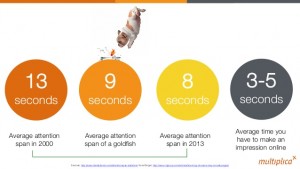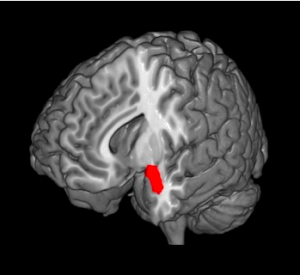Unable to Concentrate? Let’s Meditate!

You’re in a history class and your professor is lecturing about the World War. You have your textbook right infront of you and you’re staring at it without reading anything. You’re zoning out and you can’t focus on what the professor is talking about. You’re physically present in the class but your mind is somewhere else.
Does any of this sound familiar? For most of the students, this is an everyday scenario. Whether its listening to a lecture in class or trying to study at home, it is hard for many of us to stay focused in our work. However, we can remain glued to our favorite novel/comic, and our favorite TV shows for hours. Ever wondered why is it so hard to concentrate in things we do not find interesting?

Studies show that the average attention span in 2000 was 13 seconds. In 2013, the average attention span dropped down to 8 seconds.
There are numerous reasons for this. First, our brain might not be used to the amount of information we need to process. Also, there are too many distractors around us. All of the new technologies are very good at distracting us; hence, we are losing our ability to concentrate on a specific task for too long.
Meditation can help!
Several studies have shown that regular practice of meditation can help increase attention. Meditation is a mental workout, which involves attention and the ability to concentrate on a particular object for a longer period of time. Past research have shown that during meditation, brain scans show increased activity in regions directly correlated with decreased anxiety and depression, along with increased pain tolerance. Meditation has also been found to improve memory, self awareness, and goal setting. Studies have also shown that meditation physically changes our brain shape and size. The gray matters are found to be more dense in areas associated with learning, memory processing, and emotion regulation.

Meditation is associated with a decrease in grey matter in the amygdala (red), a region associated with stress.
MRI scans have also shown that after an eight-week course of meditation, the amygdala, also known as the “fight or flight” center appears to shrink. The amygdala is activated when the body experiences fear or emotion. While the amygdala shrinks, the pre-frontal cortex, associated with awareness and concentration, becomes thicker. The connections between the areas associated with attention and concentration gets stronger. Hence, meditation helps improve performance in attention-demanding activities significantly. It can help keep your brain focused and help your absorb more information without getting distracted.
Learn to expand your concentration span: Meditate!
Since it is so beneficial for us to meditate, here’s a quick guide for the beginners. There are many techniques of meditation and can be varied, but the basic concepts are:
1. Relax the body and the mind. Pick a process that helps you relax. It has be any music or mantras.
2. Be mindful. Don’t pass judgement on your thought. Let them come through and let them pass. Make sure you bring your attention back to your primary aim.
3. Concentrate on something. Concentrate on your breathe, the feel of going in and out. When your attention wavers, gently bring it back.
4. Concentrate on nothing. It can be hard at first but this can be achieved with a lot of practice.
5. ZZzzzZzz ZzZzzz. Make sure you’re not sleeping!
Resources:
http://www.statisticbrain.com/attention-span-statistics/
http://www.spring.org.uk/2009/05/how-meditation-improves-attention.php
http://blogs.scientificamerican.com/guest-blog/what-does-mindfulness-meditation-do-to-your-brain/

